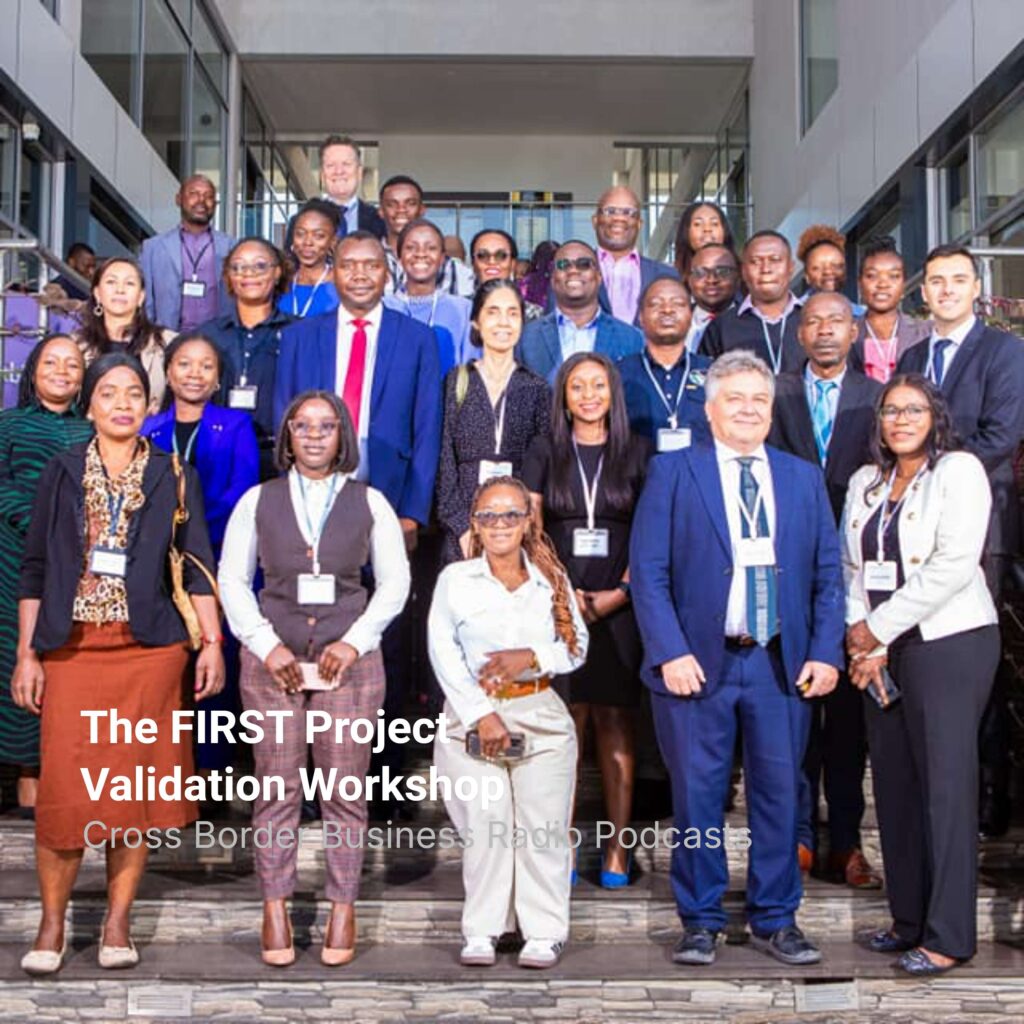
On 22nd and 23rd August 2024, Cowater International invited Cross-Border Business radio, along with representatives from various government ministries, trade associations, institutions representing women, institutions representing people with disabilities, and also research institutions from Mozambique, Zambia, and The DRC, to validate the “First Project” – an initiative aimed at supporting small-scale cross-border traders, particularly women, youth, and people with disabilities. The event was held at ‘The Quoram” in Kabulonga, Lusaka.

As the station manager of the cross-border business radio (CBB Radio) and my colleague in marketing Melayi Lwenje, we had the opportunity to participate in this project validation workshop. The discussions revolved around the key issues and solutions that must be considered to effectively disseminate information and support these marginalized groups of cross-border traders. You can listen to the podcast on top of this article to give you firsthand information.
One of the major concerns raised was the accessibility of information for those traders who may not have access to smartphones or online platforms. It was highlighted that many cross-border traders in the region, still rely on feature phones rather than smartphones. This presented a challenge in terms of reaching them through online platforms.
To address this, the participants proposed a multifaceted approach that would leverage both traditional and modern communication channels. This includes producing and distributing printed materials such as posters and flyers at border crossing points, as well as using FM radio stations to reach a wider audience.
Additionally, the project aims to provide capacity-building training for “Trade information desk officers” who can assist cross-border traders with relevant information and guidance. The research institutes involved in the project will also play a crucial role in data collection and analysis, helping to inform the development of targeted interventions. It was also discussed that there is a need to digitize the processes at the border to increase efficiency, reduce human contact, and avoid abuse.
However, one key aspect that may come as a suggestion to the project by the author of this article is for the project to consider the potential of an automated cross-border trade information system. This system would utilize an interactive voice response (IVR) technology, leveraging the power of artificial intelligence (AI) to provide a seamless and user-friendly experience for the traders.
The AI-powered IVR system would allow traders to access up-to-date information on trade tariffs, report any abuses or non-tariff barriers, and receive assistance in their preferred language, including Swahili, Bemba, Chewa, and Lingala. The system could prompt the user to choose their preferred language and automatically route them to the appropriate language-specific menu, enhancing the overall user experience.
Furthermore, for visually impaired traders, the system could be integrated with text-to-speech capabilities, allowing them to navigate the system and access the information they need through voice commands. Additionally, for the deaf community, the provision of smart devices equipped with sign language-based video instructions could ensure their inclusion and access to the latest trade information.
By incorporating these AI-powered technological solutions, the “First Project” can truly become a comprehensive initiative that empowers cross-border traders, regardless of their level of digital literacy or physical abilities. This holistic approach, combining traditional and innovative communication methods, can significantly improve access to information and support for these vital economic actors in the region.
As a cross-border business radio (CBB Radio), we are excited to play a role in this project and to explore ways in which we can contribute to the development and implementation of these innovative solutions. We believe that by working together with the various stakeholders, we can make a meaningful impact on the lives of cross-border traders and drive sustainable economic growth in the region.
Written By Ovine Nyalazi
CBB Radio
For feedback email: [email protected]
